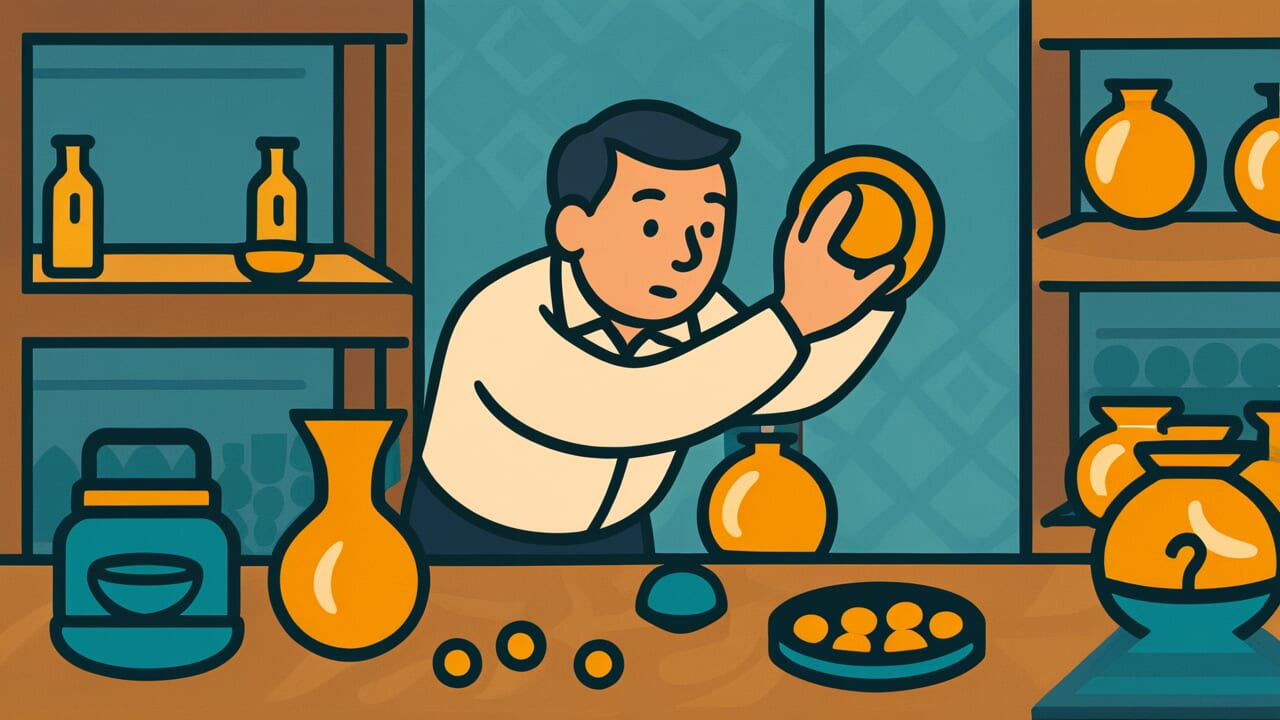How to Read “Even the jewels at the bottom of the earth will run out if you keep picking them up”
Konrinzai no tama mo hiroeba tsukiru
Meaning of “Even the jewels at the bottom of the earth will run out if you keep picking them up”
This proverb means that no matter how vast your wealth is, it will eventually run out if you keep using it. It’s a warning that all savings have limits.
People use this saying when warning against wasteful spending or teaching the importance of managing money wisely.
Even if you inherit a huge fortune, it will disappear if you spend without planning. No matter how large your savings are, they will end if you keep withdrawing without any income.
The proverb expresses this obvious but easily forgotten truth in a memorable way.
Today, people often understand it in the context of asset management and household budgeting. By using the exaggerated expression “jewels at the bottom of the earth,” it strongly warns that even seemingly endless wealth requires careful attention.
Origin and Etymology
No clear written records explain the origin of this proverb. However, we can make interesting observations by examining its components.
The word “konrinzai” originally comes from Buddhist cosmology. In Buddhism, people believed that at the very bottom of the earth was a layer made of gold called “kinrin.”
The edge of this golden layer, the deepest bottom of all, was called “konrinzai.” From this, the word came to mean “absolutely” or “forever.”
Even today, Japanese people use expressions like “I’ll never meet you again” (konrinzai awanai).
In this proverb, “konrinzai” carries the nuance of “endless” or “nearly infinite.” “Jewels at konrinzai” represents an unimaginably vast treasure.
It evokes the image of wealth so enormous it exists at the deepest point of the Buddhist universe.
Yet even such vast treasure will eventually run out if you pick it up piece by piece and use it. This is the teaching embedded in the proverb.
No matter how enormous wealth appears, it remains finite if used without planning. The proverb likely emerged as a warning about managing wealth wisely.
Usage Examples
- He thought he was safe with hundreds of millions in inheritance, but “even the jewels at the bottom of the earth will run out if you keep picking them up”—he apparently spent it all in no time
- Even if you win big in the lottery, “even the jewels at the bottom of the earth will run out if you keep picking them up,” so you need to spend it wisely
Universal Wisdom
The universal truth this proverb teaches is how poorly humans recognize “limits.” When abundance surrounds us, we easily fall into the illusion that it will last forever.
What’s especially interesting is that this proverb assumes “jewels at the bottom of the earth”—an amount close to infinite.
In other words, it emphasizes that even wealth you could never realistically exhaust will theoretically run out. This goes beyond simple money management to sharply point out human failures in time perception and planning.
When people live in abundance, their imagination about the future grows dull. If you use some today and the same amount exists tomorrow, and this continues day after day, you eventually forget the very concept of “running out.”
But in reality, all abundance has a bottom.
Our ancestors understood this psychological blind spot. That’s why they used such an extreme example as a warning.
Abundance brings comfort but also breeds carelessness. They knew that carelessness is the greatest cause of losing wealth.
The humility to never forget that resources are finite—this is the secret to maintaining wealth for a long time. This is timeless wisdom that transcends eras.
When AI Hears This
From a physics perspective, this proverb captures a universal truth with surprising accuracy. The law of entropy increase simply means “usable energy decreases in one direction only”—an absolute rule of the universe.
For example, hot coffee always cools down. The heat energy doesn’t disappear—it just spreads to the surroundings and changes into an “unusable form.”
What’s important is that this process never reverses. To return dispersed energy to its concentrated state requires inputting even more energy from outside.
In other words, every time we use energy, the total amount of “usable energy” in the entire universe definitely decreases.
The jewels at the bottom of the earth—resources that seem infinite—follow exactly the same fate.
When you drill for oil and burn it, chemical energy transforms into heat and exhaust gases, never returning to its concentrated form. No matter how abundant a resource is, using it always increases entropy and reduces usable forms.
The essence of this proverb isn’t about quantity but quality. Resources don’t “disappear”—they “change into unusable forms.”
This irreversibility is the truth our ancestors understood through experience.
Lessons for Today
This proverb teaches modern people “imagination about limits”—something we must maintain especially when surrounded by abundance.
Today, we possess abundance in many forms: savings, assets, time, health, relationships. But the moment we take them for granted, we unconsciously begin wasting them.
Just this once, just today, surely this much is fine. These small moments of carelessness accumulate, and before we know it, we’ve lost something precious.
What matters is being grateful for what we have while remembering it won’t last forever. This isn’t a pessimistic way of thinking.
Rather, because things are finite, we can cherish them. Because we know they decrease, we can use them with planning. This leads to a positive attitude.
What are the “jewels at the bottom of the earth” in your life? At what speed are they decreasing right now?
Stopping occasionally to check is the wisdom for living long and abundantly.



Comments